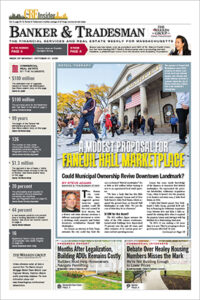Manatees are big, dopey, friendly, grass-eating, mammal-like creatures of the water – imagine a vegetarian newspaper editor out for a swim.
Folks love to watch them and play with them and invite them close to shore. So, especially in Florida, when the number of manatees killed in collisions with boats goes up, everyone is very sad and rushes to pass new regulations.
These generally require boaters not to drive so fast and not to drink so much and to pay attention to manatee play areas and to encourage environmentalists to do whatever it is one does to encourage manatees to have sex and make lots and lots of manatee babies.
The boaters, for their part, curse under their breath and suggest that the manatees have low I.Q.s and maybe they should look both ways before swimming.
As environmental struggles go, this is pretty tame, but the tale of the manatees reflects the complications of data logic.
When the number of manatee deaths go up, is it a tragic tale of boaters run amok, or a cause for celebration, reflecting the fact that manatee protection strategies have been so successful that the number of manatees has increased dramatically – thus, the increased number of accidents?
Similar questions pop up in many jurisdictions. Ponder the revelation this fall that Cambridge leads the commonwealth in the number of bike crashes.
Some folks demanded that the cops get more strict with the car drivers, or with the bikers, or with somebody who must be responsible for the bike mayhem. Some folks want more bike-friendly paths; some folks want lower speed limits, as if every moment in Cambridge isn’t already rush hour gridlock.
But, again, that manatee question does pop up. Maybe Cambridge, in terms of demographics and bike-friendly culture, is so overrun with bikes, that the relatively high number of accidents is a sort of positive trend reflecting the bicycle Garden of Eden that Cambridge intended to be – as long as you aren’t the one smashed by a pickup truck.
Prompted by a recent story in The New York Times about the dangers of biking in Manhattan, a Williamstown transplant from New York City, noting that he had moved to the “country,” scolded the bikers for “not accepting where they are and complicating urban life for most people more than it need be.”
What shall it be? Hostility to bikers? Or, a welcoming environment that reflects the reality that a few of them will end up on their butts, along the side of the street? Ask the manatees.
Blame Game
A state senator in Connecticut introduced a bill last session to protect “vulnerable users,” including bikers, from the mayhem of the roads, but the legislation fell as flat as a bike tire with a nail. New Haven is another one of those Ivy League cities that is especially welcoming to the biking culture, but doesn’t quite know how to deal with the rise in bike accidents that comes along with it.
Who is to blame in such circumstances? The cute manatees? The trendy bicyclists? The boaters and auto drivers? Or, is “blame” the wrong thing to be looking for?
Michael Skapinker, columnist for the British-based Financial Times, noted last summer that “if you like to get around by bicycle, London is pretty horrible (so, perhaps, as a consequence, are its cyclists).” Plenty of blame to go around.
Many sharp and unexpected changes in data arouse our suspicions and suggest a “problem” – even if the change is benign or positive.
Consider Indiana, which has been experiencing a sudden migration of students from private and religious schools into the local public schools. What’s this? Isn’t this the opposite of how it is supposed to work, as students escape the public schools for something better?
Well, Indiana just introduced an aggressive school voucher program, but in order to exercise “school choice,” you must be in the public schools before you can receive a lucrative voucher to go somewhere else. The journey from private to public will apparently be short-lived, once the families get their hands on a voucher.
The data points dance around us, like playful manatees, taunting us to make sense of it all.






